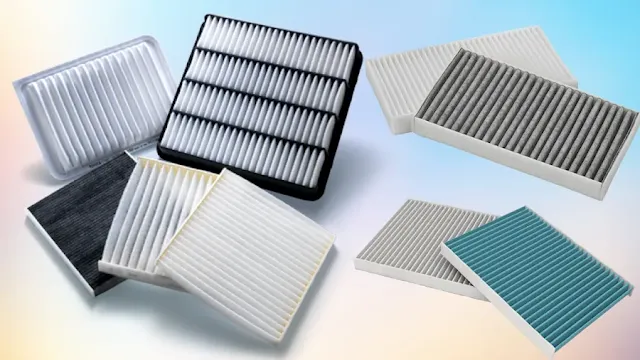
Table of Contents
Why Do Auto Shops Charge So Much?
Cabin air filters ensure clean air inside your vehicle by trapping dust, pollen, and pollutants. Despite their small size, replacement costs at auto shops often surprise car owners, ranging from $50 to $150. High prices stem from premium filter materials, labor charges, and shop markups. Understanding these factors helps you decide whether to pay for professional service or opt for a DIY approach to save money.
Types of Cabin Air Filters
Cabin air filters vary in quality and price. Basic paper or synthetic filters are affordable, effectively trapping larger particles like dust. Premium filters, such as carbon-activated or HEPA models, capture smaller particles, neutralize odors, and filter harmful gases. These advanced filters cost more due to their superior materials and technology, contributing to higher replacement costs at auto shops.
OEM Carbon Filters Explained
OEM (Original Equipment Manufacturer) carbon filters are tailored to your vehicle’s specifications, offering enhanced filtration with activated carbon. They trap microscopic particles, reduce odors, and improve air quality. While superior to basic filters, OEM carbon filters are pricier, often driving up replacement costs. Choosing OEM ensures compatibility and performance but impacts your wallet more than aftermarket options.
How Often Should You Replace It?
Replace your cabin air filter every 12,000 to 15,000 miles or annually, as recommended by most manufacturers. Driving in dusty, polluted, or heavy-traffic areas may require more frequent replacements to maintain air quality. Check your vehicle’s manual for specific guidelines to ensure optimal HVAC performance and passenger comfort.
Risks of Not Replacing Your Filter
A clogged cabin air filter restricts airflow, straining your vehicle’s HVAC system and reducing efficiency. This can lead to costly repairs and poor air quality, causing odors and allergen buildup. Regular replacement prevents these issues, ensuring a healthier driving environment and protecting your car’s systems.
Can You Replace It Yourself?
Replacing a cabin air filter is often a simple DIY task requiring minimal tools, typically taking 10-15 minutes. Most filters are located behind the glovebox or under the hood. By doing it yourself, you avoid labor fees and can choose cost-effective filters. Consult your vehicle’s manual or online tutorials if unsure, or opt for professional service for peace of mind.
Cost of Cabin Filter Replacement
Cabin filter replacement costs at auto shops range from $50 to $150, depending on filter type, vehicle make, and labor rates. Basic filters cost $10-$30, while premium OEM carbon filters can exceed $50. Labor fees, often $30-$100, plus shop markups, inflate the total. DIY replacements significantly cut costs, making it a budget-friendly option.
Frequently Asked Questions
Why are cabin filter replacements so expensive?
High costs come from premium filters like OEM carbon models, labor charges, and shop markups. DIY replacements can save money.
Can I use a cheaper filter to save money?
Yes, basic paper or synthetic filters are cheaper but less effective than carbon or HEPA filters at trapping small particles.
How do I know if my cabin filter needs replacing?
Signs include reduced airflow, unpleasant odors, or increased allergens. Check every 12,000-15,000 miles or yearly.
Is it worth paying for professional replacement?
Professional service ensures proper installation but is costlier. DIY is often sufficient for simple filter swaps.




